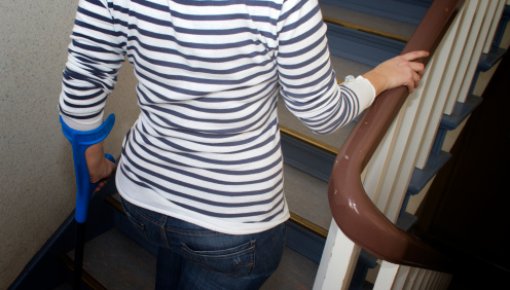Seeing a pain specialist was important to me
My doctor injected strong painkillers, but they made me feel totally out of it. I didn’t feel comfortable about taking them. At first the injections worked for about three weeks, and then they only worked for about two weeks. I had a very good orthopedic doctor at the time. He said to me, "We’re not getting anywhere. I’ll refer you to a pain specialist."
The pain specialist gave me injections too at first. He then suggested that I use something called a pain pump (ed. note: pain pumps can be used to deliver painkillers near to the spinal canal using a thin tube). I wasn’t interested at first. But then I started needing injections more often, and eventually had them every few days. The injections also had steroids in them and I noticed that my skin had become really sensitive. The doctor then mentioned the pain pump again.
I agreed to try it out, and had a pain pump implanted in hospital. I used it at home to test it in everyday situations. And it worked well. So I decided to keep the pump. I’ve been doing really well ever since. I had to get used to it at first, but that’s normal.
My doctors were very understanding, which doesn’t always go without saying. Some doctors don’t think much of painkillers, or don’t like to refer you to other doctors. Seeing a pain specialist was important to me. If your doctor doesn’t want to refer you, you can always switch doctors.


